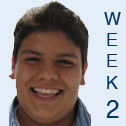BICS (Basic Interpersonal Communicative Skills) & CALP (Cognitive Academic Language Processing)
The process of acquiring English can be a long one, and each child acquires a new language at his or her individual pace and unique way. However, there are some general things that are true of most learners acquiring a second language. According to Dr. Jim Cummins, Professor in the Modern Language Centre at the University of Toronto, there are two types of language that need to be acquired. One is Basic Interpersonal Communication Skills (BICS) and the other is Cognitive Academic Language Processing (CALP).
Basic Interpersonal Communication Skills (BICS)
English Language Learners generally arrive understanding and speaking a language other than English. Many have some level of facility with English and communicate needs or wants, but may not have an understanding of academic English. The higher their functioning is in their first language, the better able they will be to learn English. Conversational English (BICS) usually develops first as it is the ability to communicate with others--}+salutations, asking for things, etc. Conversational English usually develops quite rapidly, and in some cases, children speak quite well in a year. The students’ ability to converse in English has some influence on their ability to learn concepts in English, but academic language is very different from conversational language. Children need both in order to succeed in school.
Cognitive Academic Language Processing (CALP)
Academic English (CALP) takes much longer to develop. Most theorists agree that it takes at least 5 – 7 years (some think as many as 10 years) to develop this language understanding sufficiently to participate in all English academic classes with little or no support. Students who have mastered CALP are capable of comprehending the vocabulary, conceptual knowledge, etc. in the science, social studies, and math classrooms. Developing this academic language is a process that takes years of study and meaningful practice with the language. By providing English Language Learners with relative, consistent, and comprehensible practice of academic language through listening, speaking, reading, and writing, language teachers support the cognitive academic language development of ELLs.
Additional Resources:
Article: “Explaining BICS and CALP” –Judie Haynes
Article: “How Long Does It Take to Learn a Language?” –Judie Haynes








